On the sixth day of the "The Experience of Korea E-mobility" event, our journey led us back to the office where we delved deeper into the e-mobility through a series of enlightening lectures.
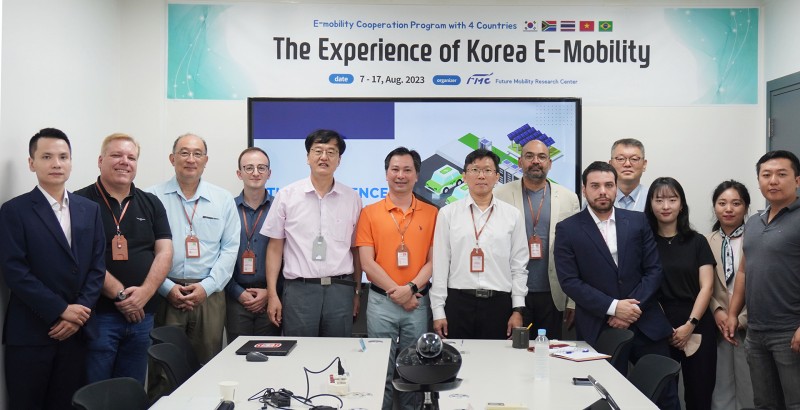
The day commenced with Mr. Sang Cheon Lee, the Head of the EV Division at Logisys, a pioneering company providing comprehensive electrical vehicle charging solutions. His presentation offered a profound insight into the intricacies of the e-mobility landscape, focusing on various crucial aspects.
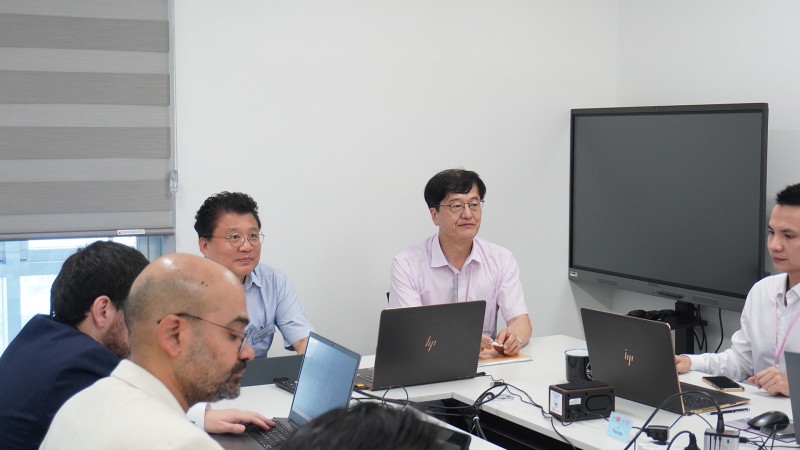
Mr. Lee shed light on the evolving market trends, both present and future, while also delving into the realm of charging operations and service possibilities. Notably, the exponential growth in the number of charging stations in South Korea was presented, projecting an impressive rise from 90,899 in 2019 to a staggering 288,000 by 2025. A significant highlight was the government's proactive role in expanding the mandatory charging installation network, underlined by performance targets and penalties for non-compliance, thus emphasizing their commitment to the electric mobility cause.
Furthermore, the intricate world of charging conditions and standards was unveiled. Multiple standards, predominantly IEC, were showcased as being applicable to charging stations. The OCCP communication protocol emerged as a pivotal element in this landscape, positioned as an international standard in Europe. Mr. Lee meticulously elucidated the complex journey of electrical vehicle charger manufacturing, encompassing planning, design, development, software programming, and quality control, thus painting a comprehensive picture of the process.
Furthermore, the intricate world of charging conditions and standards was unveiled. Multiple standards, predominantly IEC, were showcased as being applicable to charging stations. The OCCP communication protocol emerged as a pivotal element in this landscape, positioned as an international standard in Europe. Mr. Lee meticulously elucidated the complex journey of electrical vehicle charger manufacturing, encompassing planning, design, development, software programming, and quality control, thus painting a comprehensive picture of the process.
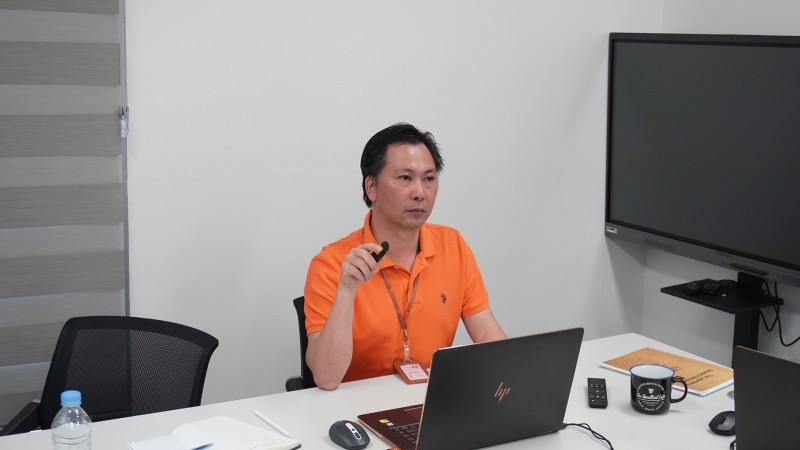
Later in the session, Associate Professor Dam Hoang Phuc from Vietnam and Professor Aquiles Rossoni from Brazil offered succinct yet insightful overviews of the e-mobility progression in their respective nations, casting a light on the diverse paths undertaken. Both countries show prominent growth in the e-mobility sector. Mr. Dam Phuc emphasized the local company Vinafast, which has a diversity of products in different modes of transportation, such as e-motorbikes and e-buses. Prof. Aquiles, on the other hand, showed Brazilian e-mobility growth perspectives and impressive numbers on renewable energy that the Brazilian electric energy matrix has.
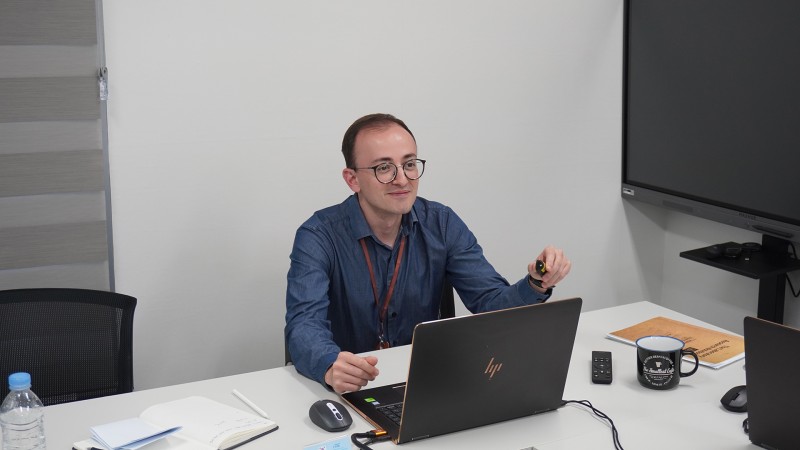
The morning was concluded with a comprehensive presentation by Mr. Sherry Cheng, brand marketing Director of SEVB Batteries, an industry leader in the domain. His discussion ranged across the spectrum, traversing the company's profile, its complete product solutions, its impressive R&D capabilities, and its strategic commitment to sustainable development. Notably, the notion of an "Intelligent Supply Chain" and its implications was expounded upon, offering a glimpse into the future of e-mobility supply management. The company has a large variety of products, which can be adapted to each specific situation, with batteries appliable for micromobility solutions.
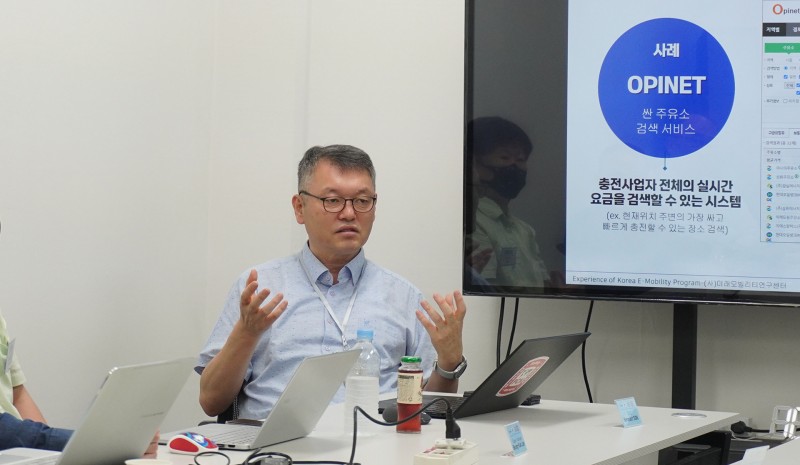
Professor Tongwon Lee, Director of FMC, and Mr. Benedict Son, CEO of PCN Group, led the discussion with delegates at the meeting. The attendees actively contributed their opinions on the debated topics.
As the day progressed, the focus shifted to the intricacies of e-motorbike dynamics in South Korea, with Mr. Kim Hyo Kun R&D team manager from Sewon Company at the forefront. His presentation vividly illustrated the regulatory complexities and the significant role of subsidies in shaping the e-motorbike landscape. The meticulous standards set by the South Korean government for e-motorbikes were highlighted, touching upon a gamut of factors, from battery charging to the operational environment. Detailed insights into e-motorbike components, including the pivotal role of Controller Area Network (CAN), motor variations, and the taxonomy of micromobility solutions, rounded off the session. The company is responsible for developing electric engines and their respective controllers for e-motorbikes, and different motors were presented, each one being better for different situations.
As the day progressed, the focus shifted to the intricacies of e-motorbike dynamics in South Korea, with Mr. Kim Hyo Kun R&D team manager from Sewon Company at the forefront. His presentation vividly illustrated the regulatory complexities and the significant role of subsidies in shaping the e-motorbike landscape. The meticulous standards set by the South Korean government for e-motorbikes were highlighted, touching upon a gamut of factors, from battery charging to the operational environment. Detailed insights into e-motorbike components, including the pivotal role of Controller Area Network (CAN), motor variations, and the taxonomy of micromobility solutions, rounded off the session. The company is responsible for developing electric engines and their respective controllers for e-motorbikes, and different motors were presented, each one being better for different situations.
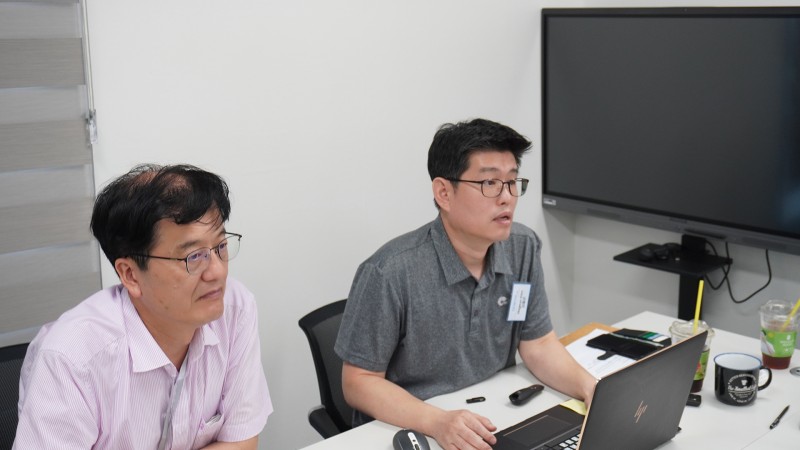
Capping off the day was a presentation by Mr. Chang Won Sung, a Professional Engineer, who delved into the critical topic of fire incidents, with an impressive background on investigations regarding the matter. His discourse dissected the potential causes of fires, attributing them to manufacturer errors and the absence or malfunction of Battery Management Systems (BMS). The presentation also offered a sobering view of fire incidents in EV cars, underlining the need for comprehensive safety measures, especially concerning charging infrastructure, battery manufacturing, and cell balancing during the conception of an EV.
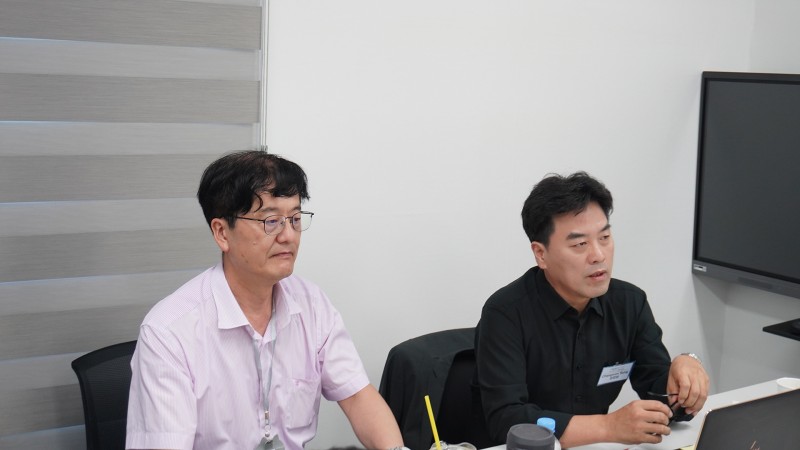
As we concluded the sixth day of our immersive journey, we found ourselves enriched with a deeper understanding of the multifaceted world of e-mobility, driven by the expertise and insights shared by our distinguished presenters.

